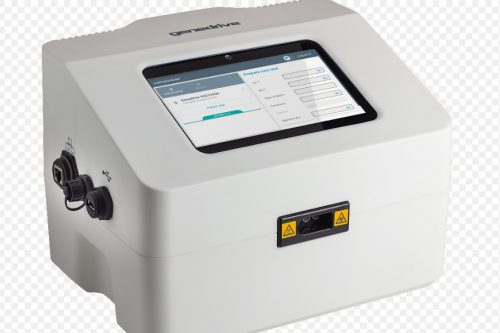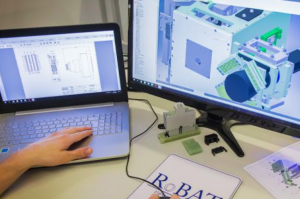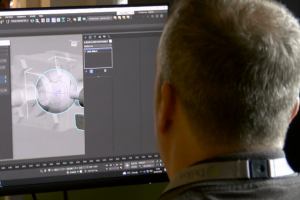Life-saving medical tech given approval for testing in Manchester hospitals

Manchester molecular testing business, genedrive, has received clearance to introduce its device, aimed at preventing stroke-related death, into the NHS.
The ward-based genetic test has received a product mark from the UKCA (UK Conformity Assessed), the UK’s equivalent of the European CE mark, after a process taking several years of development and validation.
The test can quickly tell healthcare professionals if stroke patients will benefit from the current first line treatment, to prevent recurrence.
Strokes affect more than 6,000 people in Greater Manchester each year. Individuals carrying changes in a gene called CYP2C19 are twice as likely to have further strokes when treated with the first line preventative treatment, clopidogrel.
Genedrive worked with a clinical team from The University of Manchester and Manchester University NHS Foundation Trust (MFT) on the device.
Patients being treated for mini strokes, also called transient ischaemic attacks (TIAs), heart attacks, and peripheral vascular disease, could also benefit from the technology, the Manchester clinical team says.
The genetic changes, which occur in about 25% of all patients in the UK and up to 50% in different ethnic groups, reduce the effectiveness of clopidogrel, given as standard for most patients with stroke or TIA in the UK.
If these genetic changes can be detected before treatment, then doctors can use an alternative, more effective medicine. This would prevent further strokes, avoiding hospital admissions, saving lives, and reducing costs for the health service.
Recent draft guidance from the National Institute for Health and Care Excellence (NICE) recommended that patients who have had a stroke or TIA should be offered genetic testing for variants in the CYP2C19 gene.
Current genetic testing for CYP2C19 can only be carried out using expensive machines in specialist laboratories, a process which can take several weeks.
However, the genedrive system uses a miniaturised technology for gene reading which can be performed locally in the ward or bedside, can be used with minimal training, and rapidly provides the clinician results in around an hour.
A cheek swab taken at a patient’s bedside is inserted into a testing cartridge and then the cartridge is inserted into the genedrive system, which is about the size of a shoebox. The instrument interprets the genetic information on the patient and informs the clinician with options on the course of treatment.
The test will be used at Manchester Royal Infirmary and the Manchester Centre for Genomic Medicine, Saint Mary’s Hospital, both part of MFT, over the next six months, to further evaluate performance in the clinical setting.
Bill Newman, Prof of Translational Genomic Medicine at the University of Manchester and consultant in Genomic medicine at MFT leads the project. He said: “Patients who have had a stroke, are likely to be at risk of further, more serious strokes. This is a worrying time for patients, their families and carers. Therefore, it is vital we use new approaches to ensure that patients get onto the right treatment as quickly as possible.”








